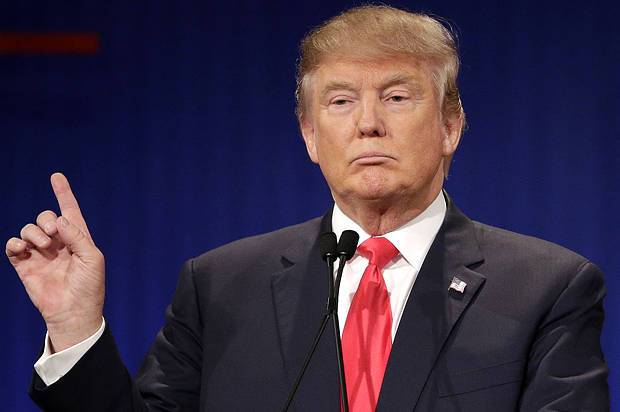What message is a beleaguered America tried to convey through bombing Syria and Afghanistan?
The message is clear: the US is still in the game. That it is still alive in the graveyard of super powers, Afghanistan. Also, that it is still capable of striking in the Middle East, where it lost most of its wars and, ultimately, power. The interpretation, however, is subject to debate particularly when international order is in disorder. America’s aggressive and unilateralist approach severely affects the peace process. Aerial bombing is no cure to the malady of terrorism. It increases collateral damage and earns hatred for the US. Anti-American sentiment damaged America’s soft power. With soft power and financial might waning, bombing and air strikes don’t help at all. Sitting in Mar-a-Lago and serving “best chocolate cake ever’, America’s most unpredictable president gave an unpleasant shock to “not amused” President Xi Jinping.
Interestingly, the states whom America is showing its military might are successfully synching their voices with the Global South. This strategy might not earn them the power and influence they are after but it will, certainly, make them powerful enough to be heard in the marginalized states. In an important sense, they are not challenging the international system but vying for a more respectful and a legitimate position in the system. The US will have to make room for their valid concerns.
Now, it is not the decline of international system but of the US’ unilateral approach. Now is the time for the rising states to have their legitimate position in the international system. Mr. Trump is facilitating them both by its shenanigans and strikes. He confronts the most significant challenges of foreign policy that the US ever faced in seventy years: to restore America’s influential role in international system. He is left with two choices. First, to appease the states who are dissatisfied with the order; second, force them to do what America wants. However, either way, he is going to end up with increasing the role of these states in international system.
Russia, also being the most potent rival of the US in the cold-war, has expressed its dissatisfaction with the international system. China, also, has been expressing its dissent for quite some time. Other countries, Brazil, India, South Africa have been voicing their concerns for long. These countries feel that they have not been franchised within the system, that they have been marginalised. Promotion of democracy by America has been perceived as a threat for their domestic politics and influence at home and abroad. American demands based on these conditions of introducing reforms also added to their frustration. They feel that they are disrespected and have been a subject of insults even in the domain of their own regional and global influence. The US interfered in the region of Russian influence in the name of democracy and humanitarian cause; and in the region of Chinese influence (East Asia) in the name of economy.
There are three possible pathways for the rising states. First, they confront the liberal west and create their own multilateral arrangements. Second, as they are not happy with the existing international structures and systems, they create alternative institutions. Third, since they do not have alternatives which are fully functional, they emerge as responsible stakeholders of the existing international order designed by the west and mediate between Global South and North.
This third option is fully operational these days. Russia has been emerging as geo-strategic partner of many states who are not happy with the US strategies. China has been accepted as a credible economic partner in the world. Emerging markets of the East are drawing foreign investors and human capital to their homelands. Compared with it singles out the American strategy.
The power of an international system comes from its sources of rules, prestige and status, which are inherently linked to the goals of its designers and sponsors. However, when the system serves its designers or sponsors at the expense of the collective good of its members, its legitimacy undermines. The US sends a negative signal to other members of the system, every time it opts for a unilateral action. It only conveys the US is more important than the system itself; and that the members are validating the preeminence of the US only. Now, the goals of the US and the international system seem to be identical to each other. To be successful on the world stage and to carry out its central role in the international system: To this end, the United States needs to respect the system first and then expect the same from others.






